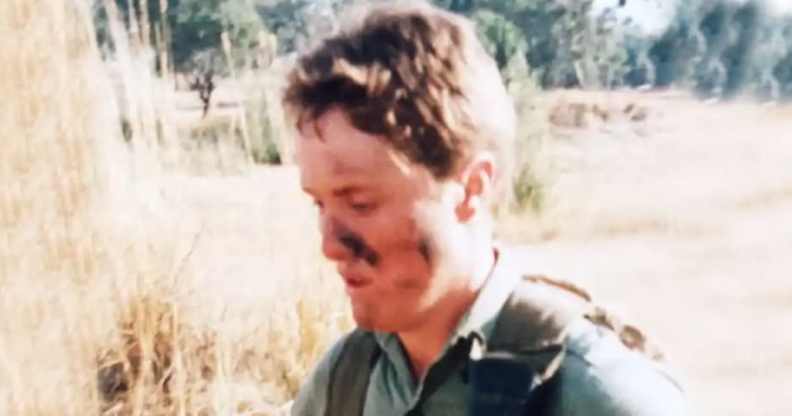Lesbian soldier ‘degraded, humiliated’ and forced out of army because she’s gay

Yvonne Sillett. (Royal Commission)
“It was the most humiliating and degrading experience of my life,” recalled Yvonne Sillett, a former Australian soldier who was interrogated and forced to leave the army because of her sexuality.
At the age of 18, Sillett began her decade-long career with the Royal Australian Signal Corps. She “loved” the job, and became a “trailblazer for women in the army”.
The corporal only came to terms with her sexuality after several years of serving in the army. Due to a fear of being penalised, she remained quiet about her relationships and tried to downplay her sexuality even to herself.
“Up until that point, I‘d always dated men. And I thought, I’m in love with a lady, but only this person. I’m not gay, I can’t be gay, I’m in the Royal Australian Signal Corps,” Sillet, now 61, told Australia’s Royal Commission into Veteran and Defence Suicide on Monday (14 February), per news.com.au.
“I assumed, and now I know, there would have been consequences. I potentially would have lost my security clearance and possibly discharge. It was an emotionally tough time for me because up until that point, I didn’t realise that I was gay,” she added.
During this time, army rules forbade homosexuality, as it was seen as “a security risk”. This policy was only repealed later in 1992.
In 1988 things would take a turn for the worse for Sillett. She was interrogated by two sergeants at the Victoria Barracks, who informed her: “We know that you’re a homosexual, we’ve been following you.”
She recalled being “treated like a criminal” as the sergeants questioned her intensively for three hours and pressured her to name other LGBT+ soldiers and effectively ‘out’ them to the army.
“They became aggressive, they tried break me down… It was the most humiliating and degrading experience of my life,” she recounted to the Royal Commission.
This was followed by a second three-hour interrogation, where Sillett’s seniors threatened to revoke her top-grade security clearance and made it clear to her that she had no future in the army.
“After several hours of this questioning they said they would be taking the matter further and that, based on my sexuality, I could no longer be in Signal Corps as I’d be open to blackmail, and that they were downgrading my security clearance which was needed to do that job. They told me I’d never instruct women again.”
In 1989, Sillett decided to leave the army through an honourable discharge, as it would have been difficult for her to continue serving with “a target on her back”.
After her departure from the Australian army, she kept quiet about the traumatic process she had gone through as she “didn’t want to break my parents’ hearts”. During this time, she received little support from the Defence Force and “began experiencing suidical thoughts”. Luckily, she was able to get her feet back on the ground with the support of her partner at that time.
IIn 2016, she worked up the courage to demand a formal apology for the traumatic treatment she underwent from the Defence Ombudsman.
Initially the case was rejected, as the “case was not deemed as serious bullying”, however Sillett has continued to fight for justice and accountability.
Three decades later, Sillett is still waiting for a formal apology.
“I didn’t get the opportunity to have 20 years of superannuation, I didn’t get the opportunity to have a pension for life, I didn’t get an opportunity to serve overseas in peacekeeping,” she said.
“But it’s not the money for me. It’s about the principle.”
Suicide is preventable. Readers who are affected by the issues raised in this story are encouraged to contact Samaritans on 116 123 (www.samaritans.org), or Mind on 0300 123 3393 (www.mind.org.uk). Readers in the US are encouraged to contact the National Suicide Prevention Line on 1-800-273-8255.

